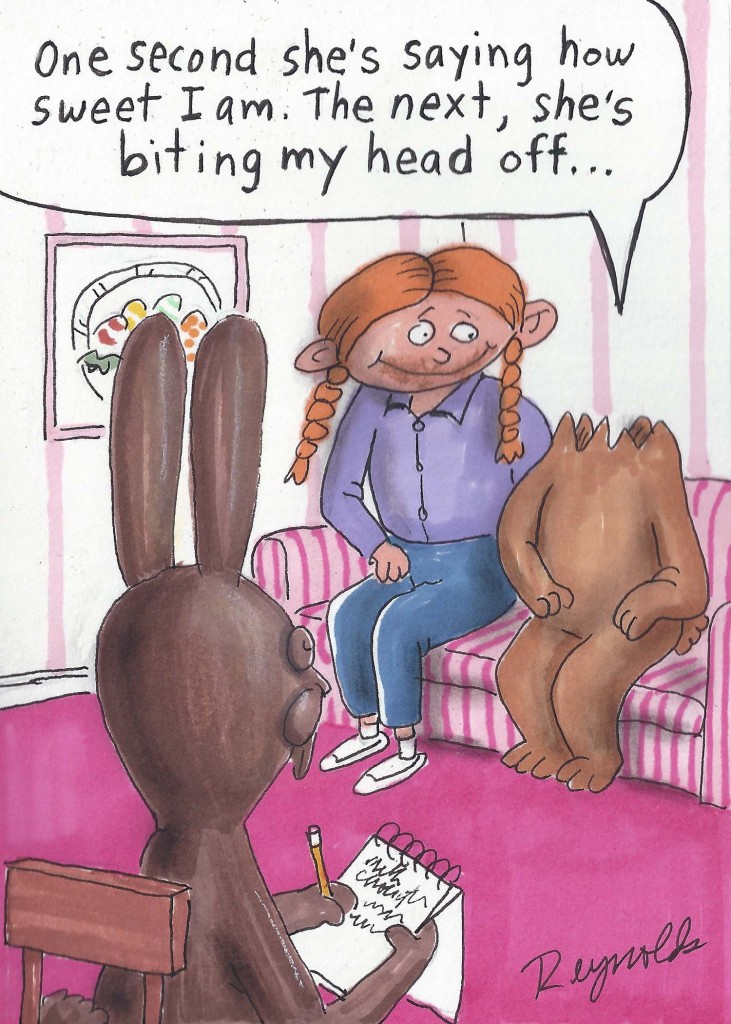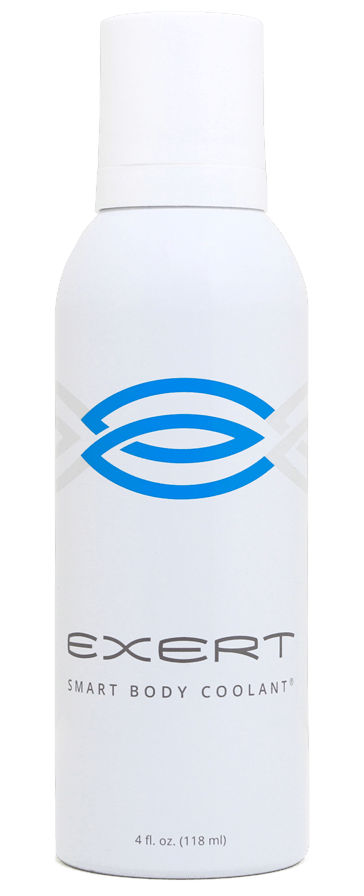Empowering women: ‘The List’
There is a strange condition that pervades social media circles. It’s called ‘The List.’ This list is much like other lists in our lives except that its purpose is to highlight the most powerful, most influential, most knowledgeable and most successful. The List represents the peak of achievement and it is important. It can lead to business opportunities, financial reward and self growth. Yet, The List has not changed much since I took my first steps on the social medial path five years ago. The List, like a lot of social media hype, may be becoming stagnant.
Mind you, the people who make The List rarely choose to be on it and more often than not, they have worked hard to earn the recognition being afforded to them. But recently, every time The List shows up on one of the various platforms with which I engage, I start to hear the dim of noise; in fact, I posit that The List is falling on deaf ears and blind eyes.
And so, I have to pose the question: when does The List start to do a disservice to those it honors and to those to whom it is directed? And what is its actual purpose?
A friend pointed out to me that at least this week’s iteration of The List focuses on women and that we truly have enough of that focus, even in social media which is, for all intents and purpose, another arm of marketing and communications. And while I agree to a certain degree, it is the same list of great women that has been published time and again. Moreover, The List is devoid of a balance of amazing women of color, young up and comers and women from all corners of the earth who may be doing wonderful, important, attention-warranting things but much more quietly and with far less accolades.
Are these lists that continue to pervade our lives a good thing?
In so far as shopping and reminders and buckets, I would say unequivocally, yes. Reminders are important for those of us in particular whose hormones tend to cause a condition called ‘menobrain.’ However, the other lists, the top 10s, most important, most influential, powerful gurus, rockstars, visionaries and like are akin to being chosen first for a game of kickball in grade school. While most people watch and wait on the sidelines, anxiously biting their nails in case they are the last to be added to a team, the same people are revered and awed time and again.
I strongly believe that women need more recognition professionally. I know some of the List women personally and I am grateful and happy to call some my friend. Others, I have crossed paths with at various business functions and I am proud of their achievements. However, I have also witnessed firsthand what exclusion does to a person’s drive and feelings of self worth. I have heard women of color discuss how the tech world treats them, and their regular exclusion as speakers at conferences. And I have met young women who believe that they’ll never ever achieve what X person on The List has achieved. And to each and every one of these women, I want to share that The List is irrelevant, not the women on The List but The List itself. It doesn’t matter; no one is paying attention anymore.
To those of you who feel an inclination to recreate the wheel over and over again, I challenge you to look outside the box and truly engage with others who are doing great things on a smaller scale. To the women who worship The List, I challenge you to start recognizing how wonderful and powerful you are without someone telling you that you are. And to women of color, I apologize because I find it appalling that we continue to discuss the challenges that you face without doing enough about it.
As women, we owe it to the next generation to find a way to communicate that making The List is not empowering; what is empowering is recognizing the sum of our achievements as women. Less noise, more signal.
Read More
The present of being present: cortisol and mindfulness meditation
Sometimes things are just timely. Like this post, which I am bringing back today for your consideration.
Happy Friday, folks! Wishing you a stress free weekend!
It seems that I write about stress a lot on FlashFree. Perhaps that is because like many, my life — namely my work — can be very stressful from time to time. However, according to the American Psychological Association, I’m not alone; most Americans suffer from moderate to high stress and the problem does not appear to be going away. Moreover? Work issues are the primary stressors in 77% of people.
From a midlife perspective, stress and its related hormone, cortisol, can cause a lot of health-related problems. In fact, not only does cortisol promote a fat dump in the midsection, but experts say that overexposure to cortisol and other stress hormones has a cumulative affect, leading to heart disease, sleep issues, digestive issues, obesity, depression and worsening of skin conditions. It’s critical to counter stress’ negative effects before they take their toll and start to do permanent damage. One important strategy to achieve a better balance is meditation.
Fortunately, a team of researchers at UC Davis’ Center for Mind and Brain are devoting time to studying psychological and physiological processes in order to explain the benefits of meditation. The framework for this effort is the Shamatha Project, which is apparently the most comprehensive meditation study ever undertaken. Most importantly, this scientific twist on a centuries old practice may ultimately elevate meditation’s place in Western medicine.
To better understand the effects of meditation on stress, the research team recently took 60 people (between the ages of 22 and 69) who had some prior experience with meditation, measured cortisol and body mass index and their current degree of ‘mindfulness,*’ and then randomly assigned them to a three month meditation retreat or a waiting list. Those on the waiting list participated in the same, three-month retreat at a later date. (*Participants completed a mindfulness questionnaire that measured the degree that these people directed their cognitive resources to sensory experiences and how often they drifted, as well as their ability to let go of distressing thoughts.)
At the retreat, the group met two times a day for one hour, guided sessions and the rest of the time (around 6 hours) practiced solo meditation in 20 to 30 minute increments. Meditation practices were focused on mindful breathing and relaxation and promoted compassion and kindness toward others. Overall, the emphasis was on present awareness rather than meandering into the future of ‘what if’s.’ During the middle of the retreat, all were encouraged to enter into silence for a period of about four weeks. Aside from scheduled meals and group meditations, everyone was on their own to decide sole meditation, exercise and free time.
Did learning how to direct and focus attention away from uncontrolled, ruminating thoughts and worry and toward a chosen target reduce cortisol levels? The researchers say that they found a correlation between a high score for mindfulness and a low score in cortisol, both before and after the retreat. The results were greatest for participants who were able to achieve the greatest increases in mindfulness, that is, the more that they reported directing their thoughts to the present/immediate experience, the lower their resting cortisol levels were. Participants also experienced large improvements in overall wellbeing, daily mood and emotional functioning.
While the findings do not prove cause and effect, they do suggest that changing the mind paradigm to focus on the now rather than the future may ultimately help to reduce our tendency to think about the past or worry about the future and in turn, counter excessive cortisol release.
Tonya Jacobs, a postdoctoral researcher and the study’s lead author, explains that “the idea that we can train our minds in a way that fosters healthy mental habits and that these habits may be reflected in mind-body relations is not news; it’s been around for centuries. But, accumulating evidence might help the idea — that the present is the best present we can give ourselves — be better integrated into Western mentalities and health practices.
Mindful meditation may ultimately prove to be one of our strongest defenses against stress and its companion, cortisol!
Read MoreGuyside: An honorable man
If I needed proof I was getting older, it came when I started into a level of crankiness that gradually built to the point where all I needed was a pair of reading glasses on the end of my nose and a walking stick to shake while inveighing against “those kids.”
Whether it’s bad luck, the randomness of the universe, or some sign of an actual trend, I’ve been seeing a lot of things lately about sexual assault in online or “geek” culture recently, and it’s getting me angry. There seems a predictable pattern to it: first, a woman writes or says something about … well, it could be almost anything. One example is Janelle Asselin’s critique of a comic book called Teen Titans. Then, a dense cloud of misogyny and ad feminem attacks follows like a cloud of gnats around a hiker. In this case, here’s an essay about what happened to Asselin after she wrote the critique.What happens after that? Usually, we all (we being neither the woman it’s happening to, nor her friends, nor the misogynists who are being misogynist) forget about it.
This hasn’t come out of nowhere. I remember when one of my favorite bloggers went underground after truly horrifying threats and comments were rained down upon her. But as the years go by, I’m finding it more and more difficult to forget about this stuff, to “get past it.” The words and threats that pop up online exist in the “real world.” There’s no shortage of men who seem to hate and fear women. But when you combine these attitudes with the anonymity that can be offered up by the online world, it can be utterly heinous.
So what is to be done? A few things, I think. The first is to not propagate these attitudes. To think about the way in which you as a man interact with women, how you agree, how you disagree, and how you debate. I disagree with women all the time, and I have a remarkable range of ways I can do that without reducing them to their genitalia or threatening them with sexual assault.
The second thing you can do is support women in your life who are subjected to this behavior. At the very least, those of us who are not trolls need to be there for our friends when they are being threatened and harassed.
The third step is the one that seems more difficult for many people: speak out. When you see this happening, tell the person that what they’re doing is wrong. If a woman is being threatened with rape for having the temerity to voice an opinion — that’s wrong. Say so. Publicly.
There are lots of attitudes that I would prefer didn’t exist at all in this world. But that can’t happen with the snap of a finger. If our society is going to become more egalitarian, laws won’t do it; changing minds will. One step in that is telling the trolls that we see them and we won’t tolerate their behavior. Edmund Burke wrote “When bad men combine, the good must associate.”
When I was a younger man, I suspect I was a bit more reticent about my views. But now? I give much less of a shit. I plan on being as vocal as I can when I see women being silenced by threats of rape and violence. I hope you will too.
Read MoreLet it bleed…
I hate to start Monday off on a bad note but I’ve got some rather unpleasant news to share: the menopausal transition is pretty darn bloody.
For many of us in late perimenopause, this abnormal bleeding might come as quite a surprise. I was fairly certain that as my menstrual periods slowed, so would the blood flow. However, the bleeding appeared to worsen the closer
I got to actual menopause. It was so heavy, I would find myself going through super pluses every hour for at least a day and a half. It was truly as if the little boy took his finger out of the dam. To make matters worse, the irregularity in the amount of blood was accompanied by irregularity in the number of bleeding days, led to thoughts that often sounded like “I’m too old for this crap.”
Sound familiar?
Fortunately, this is normal. Indeed, in the first long-term (10+ years), multi-ethnic study of its kind, University of Michigan researchers found that among 1,320 ethnically diverse women (White, African-American, Chinese/Japanese), 91% reported that at one of their periods over three years lasted 10 days or more! Nearly 88% reported spotting for six or more days consistently over their cycles. And, about 78% had three or more days of heavier than normal bleeding. What’s more is that a quarter of the women reported having heavy bleeding lasting 10 or more days within a six month period. Common factors that appeared to contribute to abnormally heavy bleeding included uterine fibriods, use of hormone replacement, and overweight and obesity (i.e. BMI 25 to 29.9 and >30). Current smokers were also more likely than non-smokers to have three or more days heavy bleeding.
Over the 10 years of the study, the women, all of whom were either in early or late perimenopuase and were only, on average, 45, kept regular diaries so the information about blood flow and duration are accurate. (By the by, early perimenopause is defined by a difference of at least a week persistently over consecutive menstrual cycles and late, as the first occurrence of a cycle length of at least two months.)
There is a wee bit of good news for our African-American and Asian sisters, both of whom fared far better in the heavy bleeding department (African-Americans were less apt to report 10+ or 6+ days of heavy bleeding or spotting while Asians were less likely to report 3+days).
So, what’s the lowdown? If you are in the menopause transition, you can expect to have longer menses with more days of spotting and heavier bleeding. The down side is that experts don’t have much advice as to what to do about it.
No doubt about it; let it bleed.
Read More
Friday Folly: He Said. She Said.
Now that we’ve got some guys sharing their side of the midlife equation, it’s time to focus on some communication between the sexes. I’ll be putting Bob LeDrew and Danny Brown and possibly a few more good men to the task in the coming weeks. In the interim? Let’s not bite of the heads of those who feed us!
Cheers for a Friday!
Read MoreAging parents, aging us

Do different generations stay different? Do we replicate the patterns of our parents, or do we make different choices?
Like many people my age, I have aging parents. In my case, that’s a mom approaching her 90s with some medical challenges and the difficult adjustment of living alone for the first time in her adult life. It’s a struggle, and I think it has forced her and her two sons to face up to some uncomfortable truths over the last few years, particularly since my dad died in the summer of 2012.
One of those: how I will confront the inevitabilities of old age (if I am fortunate enough to get there). For my parents’ generation, it was common for parents to be taken care of by one or more of their children, either in the family home or by moving into a child’s home. There was (is?) a stigma about nursing homes and retirement homes. My mother has chosen to stick it out as long as is possible in her home, the home she was born in. But unlike her parents, she doesn’t have a child who will “take care of her.” I live a 90-minute flight away, my brother is six hours away by car. Thanks to my father’s service in the Second World War, she receives a number of services that have allowed her to stay in her house — the house her grandfather bought and had moved onto the property before the Great Depression — despite the encroachments of age on her body.
For people in my generation, the rules are a bit different. I have no children to rely on. I expect that any support that my partner or I will need as we age won’t be provided by family members, but by paying people from our retirement savings and investments. While I love our house, I think that when the time comes for us to retire I’ll be able to sell it and leave with no great emotional wrench; including our house, I’ve lived in about seven different places in my adult life, and I think I’ll be able to move again.
But things have been different for my generation for a while. Here I am, typing this in a pair of jeans and a t-shirt with a graphic representation of Stephen King’s “Dark Tower” series. I never saw my dad with a pair jeans (what he would call dungarees) on or a t-shirt in my lifetime. My partner doesn’t wear housecoats like my mom does, or consider the maintenance of an immaculate home a key goal, as her mom and mine do. She works outside the home, while my mom gave up her job as a nurse in ’53, when she married, and never collected another paycheque.
We are — or at least I think we seem — “younger” than our parents at the same age. We go to concerts by loud bands, we dress differently, we participate in different recreational and sporting activities, we expect that our lives will be characterized by being and acting young for a long, long time. Thinking of Shakespeare’s seven ages, we’re unwilling to enter the fifth age, of justice and solemnity. We want to be lovers and soldiers forever.
So when we age, will we really be different from our parents? Will our expectations be different; will we make different choices? Or am I flattering myself by thinking that I’ll make other choices, better choices?
It’s easy to tell yourself that you know better than the “old folks.” But those better decisions and more logical choices are much easier to make in the world of the distant future than in the world of the cold present.
It seems to me that the real challenge for us all is to strike the constantly shifting balance between independence and dependence, between insulating our elders from danger and allowing them to live as they choose, between being determined and being bullheaded, between giving in and denying reality, between taking responsibility for our health and accepting support when offered. There’s no magic formula, no easy answer.
(photo: cc-licenced by Flickr user Lars Ploughmann)
Read MoreJust an application a day…
Keeps the flashes at bay???
When the folks at Exert contacted me on Twitter about their Smart Body Coolant, I wanted to believe, I truly did. However, what I’ve found after a week’s use is that the product simply does not live up to its claims, at least, not for me.
Exert’s Smart Body Coolant is a once-daily body spray composed of phase change and high thermal conductivity materials. Theoretically, it promises to draw heat away from the body much like a wicking fabric, reducing temperature by as much as 2 to 6 degrees. And there’s no need for additional application after a flash; it supposedly ‘recharges’ once the skin drops to optimal temperature.
Admittedly, I have been experiencing lots of undesired heat of late, both during the night and while at the gym and so, another alternative to HRT certainly appeals. But, Exert did nothing for me. Further intrigued by its lack of effectiveness, I delved deeper into its ingredients. Here’s what I learned:
- A phase-change material (PCM) is a substance with a high heat fusion that absorbs or releases energy or heat, when the material changes from solid to liquid. So, when you start sweating, it should be working to release the heat.
- Thermal conductivity refers to how well certain materials transfer heat
- Together, these should equate to cooling.
Except, they don’t.
Look, Exert is well priced and should last up to six weeks with daily application. The application part of this equation lives up to its promises: nongreasy, unscented and non-staining. And, while I remain skeptical about its effectiveness, others’ testimonials are not quite so negative so clearly, there is either a placebo effect at play or it’s working for some. My advice? I don’t believe the hype but at the same time, it’s always worth trying, right? Kudos to the company for a unique idea but spraying flashes away is not in my future. Is it in yours’?
[Disclosure – I was not paid for this review but I did receive a can of Exert care of the company’s representatives.]
Read More









